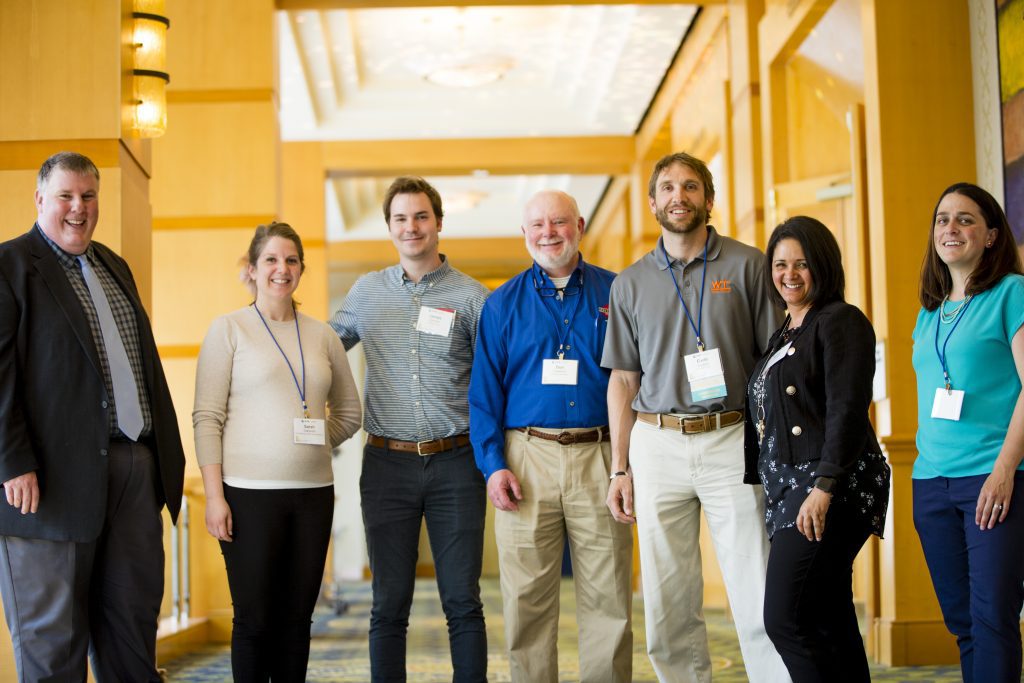
ISPE’s Chesapeake Bay Area Chapter Providing Stronger Support to Rapidly Evolving BioHealth Capital Region
March 5, 2019
With approximately 2,000 new life science-related jobs projected for the regional market, the BioHealth Capital Region is in for an exciting and turbulent 2019.
Under a newly elected executive Board, the International Society for Pharmaceutical Engineers (ISPE), Chesapeake Bay Area Chapter, is poised to help the region’s life science companies and employees navigate an impending market sea change.
ISPE, whose corporate headquarters is located in Bethesda, Maryland, is the world’s largest not-for-profit association focused on leading scientific, technical and regulatory advancement throughout the entire pharmaceutical lifecycle. The Chesapeake Bay Area Chapter was founded in 1994 to support the region’s biotech and pharmaceutical industries by providing education, training and networking opportunities. Its membership and capabilities have grown steadily as the BioHealth Capital Region has developed into a nationally recognized life sciences industry hub.
To keep up with the changing needs of the growing region, the Chesapeake Bay Area Chapter has revamped its Mid-Atlantic Science & Technology Showcase for 2019, enhanced its Industry Advisory Board to include more company diversity and has increased its focus on workforce development programs.
“There’s a tendency for people in our region to think hard hats and construction when they hear ISPE. And of course, that’s an element of what our chapter does, but we’re also equipped to help companies and individuals even if they’re not actively building. ISPE can help with regulatory, quality and other areas that tie into a lot of different companies whether they’re in the planning stages, navigating regulatory requirements or confronting ongoing manufacturing obstacles,” stated Ben Skowronski, chapter President and Director of Business Development at CRB.
ISPE is about more than just engineering and construction. The chapter creates professional development opportunities, technical training sessions and networking events for all levels of an organization.

“I think of our chapter as a driving force for networking. It doesn’t matter what level you’re at in the industry or what discipline you operate within, our programs add value to all parties involved and for all levels of experience,” said Brad Sepp, chapter Vice President and Director of Manufacturing Sciences at Emergent Biosolutions.
The upcoming MAST Showcase, which will be held on March 27, 2019, reflects the tremendous diversity among the chapter’s membership. MAST is the largest trade conference in the region that is fully dedicated to the biotech/pharmaceutical industry. This year’s showcase will feature 75 plus exhibitors and 500 attendees are expected. Aaron Vernon, VP of Engineering and Supply Chain at Autolus Ltd., will be the keynote speaker. He will be discussing advances in cell and gene therapy and why Autolus chose Maryland for their commercial biomanufacturing operations.
“Our Board sat down and discussed what we wanted MAST to be this year. Our new vision for the event included attracting and engaging a wider industry constituency. This year we have a broader profile of vendors, panels and a more centralized location that we hope will speak to the entire Biohealth Capital Region,” stated Sepp.
“As a chapter we’re trying to match the growth and maturity of the region. The form MAST is taking in 2019 directly reflects the diversity of our Board, Advisory Board, and, most importantly, our Membership,” said Sepp.

“Our Board has done a great job working together to make MAST a premier event for the region and we are lucky to have strong leadership in Caroline Cappo, MAST Chair, and Lynda Duffy, Chapter Manager,” added Skowronski.
The chapter’s Advisory Board is one of several internal governance groups shaping the chapter’s vision and activities. Whether it’s the chapter’s new Women in Pharma or Young Professionals committees, or the Advisory Board itself, diversity and inclusivity are two driving forces for the organization.
Growth and change in the region sparked the new approach for the Advisory Board and the chapter overall. The Advisory Board was revamped in July 2018.
“We saw the significant growth in the BioHealth Capital Region and realized very quickly that we need to keep up with that growth,” stated Skowronski. “In the early days, so much of the regional activity was focused on HGS and MedImmune. Now, the region has moved beyond and become so much more. We called out to leadership in the region for Advisory Board members–we now have 16 people on the Advisory Board, representing a wide range of companies from small to large.”
MAST 2019 is a key event for the chapter and the region, but it’s just one element of the chapter’s approach to helping individuals and companies navigate industry challenges.

“A big need we’ve heard about time and again is professional development in this environment of growth and change. We are expanding our professional development and education initiatives to grow as the market does, making sure to provide training to experienced professionals and the next generation of leaders,” said Skowronski.
Skowronski, Sepp and the Advisory Board recognize that the region is not only growing but it is also changing. Medicine is becoming more personalized; cell and gene therapies are on the rise and the BioHealth Capital Region is seeing the impact of this change. These new therapies and the companies that develop them will significantly impact everything from manufacturing and quality to the types of support companies required in the market. ISPE and the Chesapeake Bay Area Chapter recognize this shift and are making the necessary adjustments to remain the premier education, networking and collaboration organization for pharma professionals on a global and regional level, respectively.
“There are too many companies and positions now so we all have to work together to make this growth happen and to sustain it. We don’t want to compete with one another and weaken the region as a result. We’re all realizing the time of playing musical chairs with key personnel is over,” said Skowronski. “We can’t do that anymore. Hopefully our chapter and events can help develop existing talent from other industries providing a new candidate pull for the region.”
“What makes ISPE different is that interaction is fostered at the grassroots level. Our committees and activities–whether its Women in Pharma, Young Professionals, our support of student groups or our social events–are building strong public-private relationships where we can keep the conversation going about how we can keep growing. We’re striving to build a culture and a network that you can rely on and leverage throughout a career,” said Sepp.
The ISPE Chesapeake Bay Chapter exists to be a comprehensive resource for biotech and life sciences best practices for a diverse array of industry companies and professionals across all career phases. The chapter, backed by the full support of the entire ISPE organization, is perfectly positioned to support the BioHealth Capital Region as it grows and evolves to become top 3 by 2023.
- About the Author
- Latest Posts
Steve brings nearly twenty years of experience in marketing and content creation to the WorkForce Genetics team. He loves writing engaging content and working with partners, companies, and individuals to share their unique stories and showcase their work. Steve holds a BA in English from Providence College and an MA in American Literature from Montclair State University. He lives in Frederick, Maryland with his wife, two sons, and the family dog.





